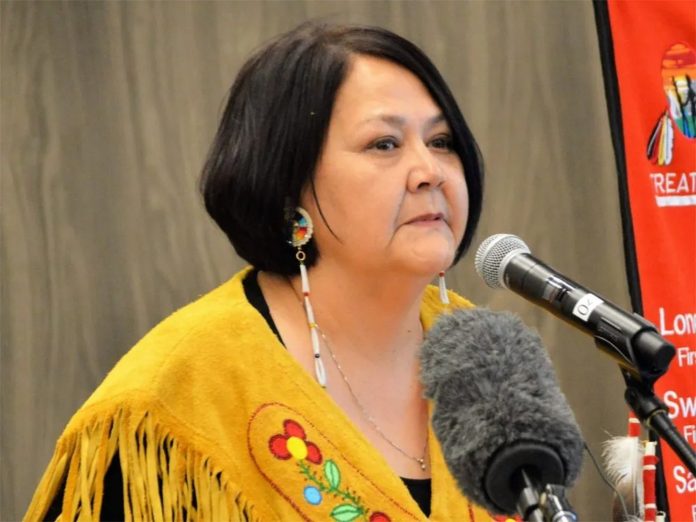
Dave Baxter, Local Journalism Initiative Reporter, Winnipeg Sun
Canada’s Auditor General says the federal government continues to fail to bring safe and adequate homes to First Nations communities, and is not putting its money where its mouth is, when it comes to promises made and the tens of billions of dollars needed to fund First Nations housing.
“Many people living in First Nations communities do not have access to housing that is safe and in good condition; a fundamental human right,” Auditor General Karen Hogan said in a statement regarding a new report released in March.
“This is the fourth time since 2003 that we have raised concerns about housing in First Nations communities and, 20 years later, many of these concerns persist.”
According to the report, there are approximately 119,000 housing units located in approximately 600 First Nations across the country. The report shows that people in First Nations communities are four times more likely to live in crowded housing, and are six times more likely to live in housing in need of major repairs than non-Indigenous people.
To close that gap, it says First Nations communities need 55,320 new housing units and repairs to 80,650 existing units, at an estimated cost of $44 billion, according to a 2021 report by the Assembly of First Nations.
But over the last five years the reports states Indigenous Services Canada (ISC) and the Canada Mortgage and Housing Corporation (CMHC) spent $3.86 billion on improving housing in First Nations communities.
According to the Auditor General, ISC and CMHC share primary responsibilities for housing on First Nations, but she said both agencies are currently “failing” at those responsibilities.
In 2019, the Liberal government pledged to work to close the “housing gap” between Indigenous and non-Indigenous Canadians by 2030.
The feds are not currently on a pace to keep that promise, the Auditor General says.
“We found that 80 per cent of these needs were still not met, with seven years left before 2030,” Hogan said.
“Neither the department nor the corporation prioritized their limited funding for communities with the greatest housing needs. For example, we found that, overall, First Nations communities with the poorest housing conditions received less funding than communities of the same size with better housing conditions.”
The report also states that it is currently unknown how many homes in First Nations communities might have issues of mould, and there is concern that number could be high.
“Mould in First Nations homes is a long-standing health hazard, and Indigenous Services Canada and the Canada Mortgage and Housing Corporation still had not identified the magnitude of the problem,” the report says.
The report concludes there was no “meaningful” improvement in housing conditions in First Nations communities between 2015 and 2022 in Canada.
According to federal data, of the approximately 164,289 registered First Nation persons living in Manitoba, 57% or 93,840 live on reserve in the province’s 63 First Nations communities.
With more than 90,000 Manitobans living in First Nations communities, Assembly of Manitoba Chiefs Grand Chief Cathy Merrick called the new report alarming, and accused both ISC and CMHC of “decisive apathy” when it comes to First Nations housing.
“It echoes what First Nations Leadership across Turtle Island has long voiced; these systems are broken, ineffective, and egregiously underfunded,” Merrick said in a media release.
In a joint statement both ISC and CMHR responded to the report.
“We know that there is more work to be done so that all First Nations have access to quality, affordable housing. We are committed to working with our partners to make this a reality. Today, we welcomed the report of the Auditor General of Canada,” the organizations said.
“We accept all the recommendations. This report reinforces the importance of prioritizing First Nations housing, guiding us to concentrate on the crucial issues that will help us effectively tackle this persistent issue.
“While significant strides have been made, this report reminds us that there is still work to do.
— Dave Baxter is a Local Journalism Initiative reporter who works out of the Winnipeg Sun. The Local Journalism Initiative is funded by the Government of Canada.

